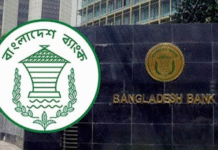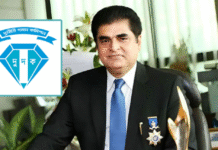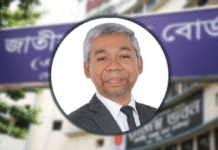Md Fazlur Rahman

Nearly half of mobile subscribers in Bangladesh pay for the value-added services they have not subscribed to as service providers stealthily activate them without their consent on their phones, according to a probe by the telecom regulator.
This prompted the Bangladesh Telecommunication Regulatory Commission (BTRC) to order mobile phone operators to implement a one-time password (OTP)-based procedure to protect the mobile users from the malpractice.
Telecommunication value-added service (TVAS) providers offer various services such as welcome tunes, voice messages, news alerts, missed call alerts, call block, call forwarding or diverting, music, videos, mobile games and streaming services, balance transfer, through mobile carriers under a revenue-sharing model and customers are charged by mobile phone operators.
The service providers must obtain consent from subscribers before activating any service. But they did not take such permission from the users in nearly 50 per cent cases but the customers were charged, according to the commission’s probe into the allegation against two VAS providers.
The BTRC collected information about the activities of Purple Digit Communication Ltd and the Abhi Kathachitra Ltd and also the list of their subscribers in the last six months. The officials of the systems and services division of the commission directly called the subscribers to find out whether they gave consent before availing the services.
In the case of Abhi Kathachitra, the sample size was 90 among its 358,722 users. Some 46.46 per cent of the surveyed respondents said they did not give their consent although the services were activated, according to the findings of the probe.
The regulator summoned the two firms and the representatives of the firms admitted to the allegation although they did not give any written statement to this effect, a document of the BTRC showed.
Abhi Kathachitra raked in about Tk 17 lakh from its TVAS service Dhallywood24 News Alert in August and the respective mobile phone operators took home Tk 26 lakh.
Purple Digit Communication’s Iqra service brought it Tk 30 lakh in April.
Robi Axiata and Banglalink, respectively the second and third-largest mobile phone operators in Bangladesh, provided the services to their subscribers through the two firms, according to the BTRC.
“Although they have never accepted the responsibility, the mobile phone operators take the share of the profit,” the commission’s probe report said.
“Had the mobile phone operators wanted, it would not have been possible to deduct the money from the balance of the mobile phones of subscribers stealthily. Mobile phone operators can’t evade their responsibility.”
The telecom regulator found that the VAS operators mostly targeted the people who use feature phones and the services are activated after midnight.
“We are trying to streamline the services and bring them under a system. These services are imposed on subscribers but they don’t know about this. This is our concern,” said Subrata Roy Maitra, vice-chairman of the BTRC.
The probe report recommended filing cases against the VAS providers for cheating customers and ordering them to pay back the subscribers who were charged without their consent.
Similarly, the mobile phone operators could be asked to return the money to the state coffer and could be fined, it said.
The number of TVAS licence-holders in Bangladesh is 183, according to the BTRC. The guideline on the service was issued in May 2018.
In order to protect the interest of the subscribers, the BTRC on September 14 instructed mobile phone operators to implement OTP-based authentication procedure to activate VAS services.
If the system is not put in place by September 30, it would take steps to close all VAS services provided by the mobile phone operators from October 1 this year.
Activating VAS services without user’s consent has been a matter of concern for the BTRC and the subscribers for the last several years. The commission held discussions with stakeholders on the issue several times since 2017 and sat with the VAS teams of a number of mobile network operators (MNOs).
In September, the BTRC found that three VAS operators are providing services to a huge number of subscribers without their approval.
“This proves that MNOs are not taking the issue seriously which is unexpected,” the BTRC said in an email to the operators on September 30.
On the same day, the Association of the Mobile Phone Operators in Bangladesh (Amtob) informed the BTRC that all MNOs have implemented two-tier authentication process for TVAS activation through short message service (SMS), interactive voice response (IVR), wireless application protocol (WAP) and unstructured supplementary service data (USSD).
“We are confident that a two-tier authentication module is as good as OTP, if not better, as no VAS is activated without customer’s cognitive consent.”
The association said OTP authentication would make the entire customer journey difficult given the low smartphone penetration because the subscribers have to use two different channels to activate any service.
It is difficult for non-smartphone users to verify OTP from SMS application and input in IVR or USSD ongoing session.
Smartphone penetration in Bangladesh was 40 per cent in 2019, according to a report of the Groupe Speciale Mobile Association. There are 16.6 crore mobile phone subscribers in Bangladesh.
The Amtob called for a consultation with VAS providers and MNOs to reach a sustainable solution.
“VAS operators are regulated by the telecom regulator. Therefore, as far as VAS-related malpractices are concerned, the primary responsibility of any misdeeds can’t be on mobile operators,” said Shahed Alam, chief corporate and regulatory officer of Robi Axiata.
“However, since the VAS services are delivered using our network, we are fully committed to collaborating with the BTRC to stamp out any malpractices. We have installed the required security solutions to combat illegal activations. Digital fraudulence is a social ill and we have to fight it together.”
Taimur Rahman, chief corporate and regulatory affairs officer of Banglalink, said TVAS providers receive registration from the commission and they are the owners of the services.
“Moreover, we also take double consent for such services in line with regulatory directives. In case users don’t want to opt for a service, they can also choose “stop all” option.”
“Whenever we get any complaints from customers, we investigate the matter and take actions against TVAS providers. This sometimes leads to contract termination,” Rahman said.
The size of the country’s telecom-related VAS market is about Tk 100 crore, said Rafiur Rahman Khan Yusufzai, general secretary of the proposed Content Provider and Aggregator Association of Bangladesh.
“This is a new business in Bangladesh. So, the commission, the mobile phone operators and VAS providers should sit together to find a solution so that the segment can grow,” he said.
About 3,000 IT graduates work in the segment.









